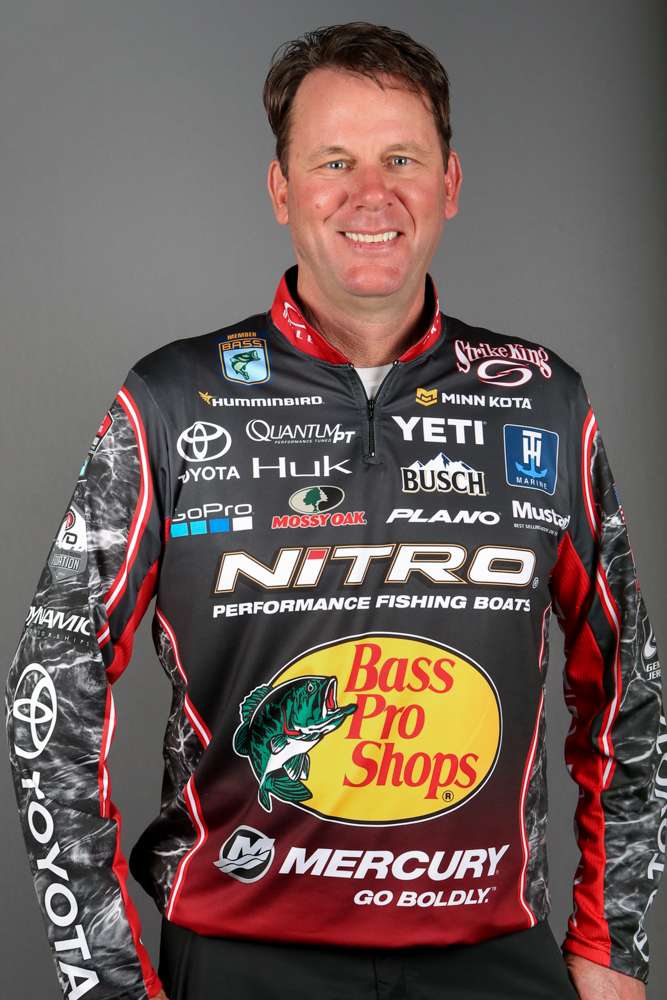We're in a break now — well-deserved if I do say so myself — before the last two Elite Series tournaments. This is an excellent opportunity for me to share my thoughts with you concerning fish management during competition. It's one of the most important skills you can develop as a tournament angler. It requires thought, preparation and a little guesswork.
Before you decide how to manage your fish, however, you need to have an idea of what weights you'll need to win the event. I get most of that information from my own practice or from conversations with trusted friends such as Scott Rook and Davy Hite. After that, I try to make an educated guess.
I sometimes look at prior professional tournament results but almost never at local results. For one thing Elite Series anglers catch more bass than recreational anglers. For another, local anglers often know their waters. Sometimes that's good, sometimes bad. But, it's always a factor and always skews the results.
And I never pay attention to what local anglers predict. They often base their estimates on the best catches ever on their waters. Weights are rarely that high. Don't let them fool you.
Once you have an idea of what you'll need to win, it's time to get down to the business of managing your fish. Doing that in a multiday tournament is very different from doing it in a one day event.
Here's how I approach the task.
In an Elite tournament — multiday — I rarely save a spot for another day. I know a lot of the other anglers do but that's not my style. I like to catch what I can, when I can, and let tomorrow take care of itself. Weights are cumulative. But, like most things in bass fishing there are exceptions.
I'll save some bass on a spot if I'm catching all the same size fish. It doesn't make sense to stay in one place and catch two dozen 3-pounders. You're not helping yourself by catching them all in the same day. Save some for tomorrow.
That's the exception, however, not the rule. The key to winning a multiday event is to have enough fish to last for however long the tournament lasts. The only realistic way to do that is to have lots of spots. One or two or three spots just aren't going to hold up for days at a time, not usually anyway.
And besides, conditions change. What if you save fish and the weather makes a radical change and your spots are worthless the next day? (Lake Erie is an excellent example. Save a spot for tomorrow and you might not be able to get to it or fish it because of the wind.)
Now, in a one day tournament, you want to think a little differently. You aren't coming back tomorrow so there's no need to have a dozen spots. One or two or three may be enough to get you a first place check.
A single day strategy that's popular with a lot of anglers is to go somewhere, catch a quick limit and then try to upgrade your bag as the day goes along. I would offer another suggestion: Go to your big bass spot first and try to put a couple of giants in the boat quick and then worry about filling out the rest of your sack.
There's nothing like having a 4- and a 5-pounder in the boat before 9 a.m. It changes your whole attitude about the day. Besides, two bass that weigh 9 pounds beats five bass that weigh 5 pounds.
Another idea — really a requirement — is to know the spots your fishing and why the bass are there. This is important regardless of the length of the tournament. Knowing your spot answers the question of whether you should leave fish to find fish.
If it's a holding spot — the bass are staged on it but not moving in and out much — there's no reason to fish it all day looking for a big bite. The bass aren't going to replenish much as the day goes along. They are what they are. There's little chance of a giant moving into the neighborhood.
On the other hand, if it's a feeding spot and the bass are moving in and out all day, it might make perfect sense to stay and try to catch a bigger one. Often you can upgrade your bag by sitting on this type spot and catching an occasional kicker.
Knowing your spot isn't an easy thing to do. It takes practice and even then you'll never know with absolute certainty. Mostly it's a matter of making an educated guess about what's happening under the water with creatures we only half understand.
That sounds like bass fishing, doesn't it?

